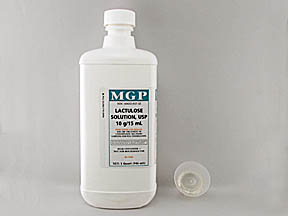
Lactulose Coupons & Savings Card – Discount Prices from $5.27
Generic for: Kristalose, Constulose
My prescription
Edit
237ML of 10GM/15ML, Lactulose (1 Bottle)
Select pharmacy

CVS
$23.28
COUPON PRICE
Walmart
$5.27
COUPON PRICE
Walgreens
$7.98
COUPON PRICE
Albertsons
$8.60
COUPON PRICELactulose savings card
Show this card to your pharmacist
Walmart
$5.27
BIN
ID
PCN
GRP
019876
LH099713B5
CHIPPO
LHX
Powered by
More prescriptions for hepatic encephalopathy
More prescriptions for hepatic encephalopathy
Price history for Constulose (brand) & Lactulose (generic)
1 Bottle, 15ML of 10GM/15ML
Average retail price for Constulose
Average retail price for Lactulose
Average SaveHealth price for Lactulose
Our price history data is based on aggregated prescription data collected from participating pharmacies in America. Our prescription data updates daily to reflect the latest price changes. If you notice a missing data point, it means there wasn't sufficient data available to generate a monetary value for that date.
We analyzed Lactulose prices for (15ML of 10GM/15ML, 1 Bottle) over the last 12 months. The average retail price was $14.87, while the average price using the SaveHealth discount card was $11.51. That's a savings of approximately 22.60% when using our Lactulose coupon.
Compared to the generic version, Constulose had an average price of $9.67 over the same time period. With the SaveHealth savings card, Lactulose is -19.03% cheaper on average than Constulose.
*Retail prices are based on pharmacy claims data, and may not be accurate when we don't have enough claims.
Lactulose dosage forms
Dosage Quantity Price from Per unit 15ML of 10GM/15ML 1 Box $2.68 $2.68 15ML of 10GM/15ML 2 Boxes $2.85 $1.43 15ML of 10GM/15ML 3 Boxes $3.03 $1.01 30ML of 20GM/30ML 1 Box $1.01 $1.01 30ML of 20GM/30ML 2 Boxes $1.01 $0.51 30ML of 20GM/30ML 3 Boxes $1.01 $0.34
| Dosage | Quantity | Price from | Per unit |
|---|---|---|---|
| 15ML of 10GM/15ML | 1 Box | $2.68 | $2.68 |
| 15ML of 10GM/15ML | 2 Boxes | $2.85 | $1.43 |
| 15ML of 10GM/15ML | 3 Boxes | $3.03 | $1.01 |
| 30ML of 20GM/30ML | 1 Box | $1.01 | $1.01 |
| 30ML of 20GM/30ML | 2 Boxes | $1.01 | $0.51 |
| 30ML of 20GM/30ML | 3 Boxes | $1.01 | $0.34 |
